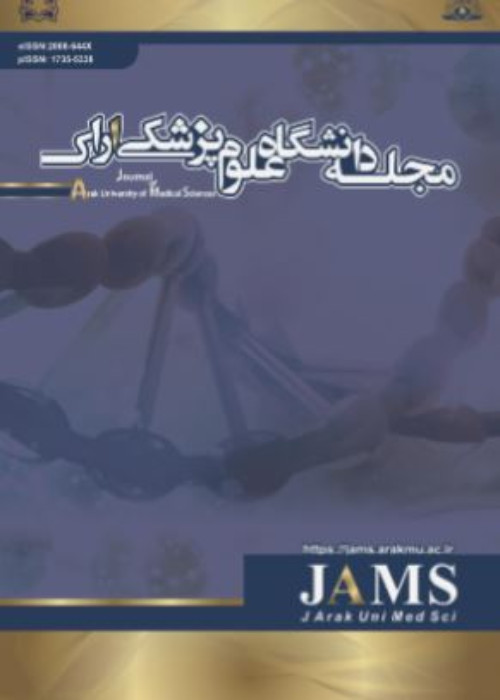A comparative study of metacognitive beliefs Hypochondriasis patients and normal individuals during the Covid epidemic 19
The main purpose of this study was to compare the metacognitive beliefs of people with hypochondriasis Covid 19 and normal people.
In this research, the causal-comparative method has been used. The statistical population of the study included all people with hypochondriasis disorder Covid 19 in Arak, based on this, 30 people from the population with this disorder and 30 people from the normal population were selected by available sampling method and based on Age and education were matched. Data were collected based on the short form of the 1997 Wells Metacognition Questionnaire (MCQ-30). Multivariate analysis of variance was used to analyze the data.
Ethical considerations
the present study has been registered with the code IR.IAU.ARAK.REC.1399.036 in the ethics committee of Islamic Azad University Arak branch. And defended in the form of a master's thesis in clinical psychology in September 2020. Before starting the study, informed consent form was obtained and the subjects could leave the study at any stage of the study if they wanted.
The results showed that there was a significant difference between metacognitive beliefs in patients with hypochondriasis covid 19 and normal individuals (P <0.001). These patients were significantly different from normal individuals in the components of positive beliefs about worry, negative beliefs about thought control, self-awareness, cognitive uncertainty, and the need to control thoughts. And in the components of positive beliefs about anxiety, negative beliefs. They got higher scores on controlling thoughts and cognitive self but on the components of cognitive uncertainty and the need to control thoughts compared to normal people.
Hypochondriasis disorder causes many problems for the individual and the health system, so by recognizing the dysfunctional metacognitive beliefs of these patients, metacognitive therapy can be an effective treatment for this disorder.
- حق عضویت دریافتی صرف حمایت از نشریات عضو و نگهداری، تکمیل و توسعه مگیران میشود.
- پرداخت حق اشتراک و دانلود مقالات اجازه بازنشر آن در سایر رسانههای چاپی و دیجیتال را به کاربر نمیدهد.



